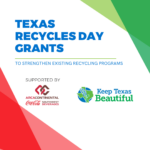In 2015, the United Nations General Assembly developed a collection of global goals for communities and businesses to use for addressing social issues like education, energy, and the environment by 2030. These Sustainable Development Goals (SDGs) are supported by Nissan, who in turn has updated its Nissan Green Program (NGP), a series of midterm environmental action plans to reduce environmental dependence and impact to an appropriate level, to meet the SDGs goals.
NGP2022 is Nissan’s latest edition of the NGP program. Specifically, it will promote the development of electric vehicles (EVs) through “Nissan Intelligent Mobility,” technological innovation of manufacturing, maximization of the value and utilization of resources and cars and innovative technologies and services by the year 2022. Nissan’s ultimate goal is to manage the environmental dependence/impact caused by its operations and products to a level that can be absorbed by nature so that we pass on rich natural capital to future generations.
The company identified four key environmental issues: climate change, air quality, water scarcity and material resource dependency. With these issues in mind, the NGP2022 framework was developed and embraced at every level of the company and is implemented in future plans.
Climate Change
Nissan’s solution to climate change is to promote society’s de-carbonization through expansion of electrification/intelligence of vehicle and innovative future production. Its objectives are to reduce 40% of CO2 emissions from new cars, develop a pilot program with connected cars and a global expansion for energy management. Its corporate objectives support the long-term vision of achieving 80% of CO2 emissions from corporate activities.
Air Quality
Nissan has committed to creating a comfortable in-cabin environment to protect human health and to reduce the impact on the ecosystem. To reach this goal, the company will research technical solutions to improve cabin air quality and promote the reduction of VOCs in manufacturing practices.
Water Scarcity
Nissan is committed to reducing water consumption and managing water quality with production that cares ecosystem service. To reach this goal, Nissan intends to reduce water per global production by 21% by 2022.
Resource Dependency
Nissan plans to create a system that uses resources efficiently and sustainably and to promote services to use vehicles more effectively. To reach its goal of reducing dependency on new materials by 70%, Nissan has identified the following objectives in accordance with the NGP2022 program:
- Conduct research on a technical solution for bio-material development
- Implement an updated alliance policy on chemical substance management
- Reduce new natural resource usage by 30%per vehicle
- Double the re-manufacturing item coverage
- Expand the EV battery reuse business opportunities
- Plan and implement technical development for die-less forming
- Reduce waste production in manufacturing practices
- Reduce landfill production in manufacturing practices
For more information on Nissan’s environmental philosophy and the NGP2022 program, please visit NissanGlobal.com.
Blog Post Contributed by Nissan, a Keep Texas Beautiful Sponsor.





